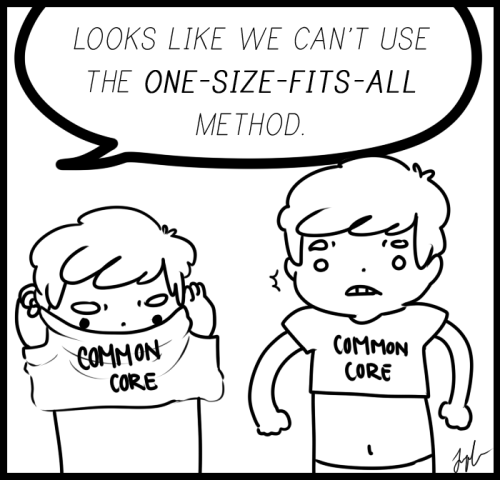National Uproar Over Common Core

PAULA KIRYA
REBECCA ZENG
Staff Writers
When the Common Core State Standards (CCSS) were first implemented, the transition from separate state academic exams and standards to more federal education exams and standards proved difficult, costly and inconvenient to both students and teachers, according to Reason Magazine. Common Core originated as a way to unite the nation’s education standards, but only if states wished to participate. However, Common Core was then promoted by the federal government as they issued release waivers from the No Child Left Behind (NCLB) policies and gave states a chance for grant money.
According to the Huffington Post, several states tried to back out of the program after realizing its defects. A substantial issue that arose was that computerized Common Core tests were often too difficult for kindergartners and other young students to comprehend. Many have little experience or knowledge in computer usage. In addition, teachers were evaluated based on their students’ grades on the standardized tests. Though this policy is more efficient in keeping quality teachers than securing jobs based on seniority, many teachers are at a disadvantage because their students are unprepared for computerized tests based on new, expensive textbooks that many schools cannot afford.
Schools in struggling and impoverished communities not only lack the resources to properly instruct their students according to these demanding standards, but also have students falling behind because their circumstances and environment may make focusing on their studies difficult. Despite the popular view that students learn at different paces, CCSS is unsuited for flexibility in the classroom due to its rigid academic standards. The implementation of CCSS was monitored and many elementary school students were anxious and stressed from school work as they failed to grasp the concepts of Common Core. Students grew wary of the confusing and exceedingly long tests that had high expectations, according to Reason Magazine and the New York Times.
Now, however, Congress is weighing the idea of switching back to NCLB. This is appealing because by discontinuing NCLB waivers, some of the schools that adopted CCSS for the alleged advantages of these waivers will return to state standardized education with customized educational policies and tests for individual states.
All in all, though having a national standardized educational policy is appealing in theory, the standardized testing and expensive materials that come with CCSS are more detrimental than beneficial to students. The prospects of a new NCLB program may provide hope for the future education of today’s youth, as the government should now know to consider students’ varying needs and conditions to provide them with a better education.